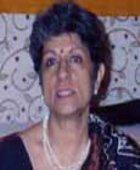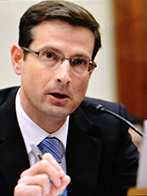The civil-military equation in Pakistan has begun to tilt in favour of civilians
- No(56%)
- Yes(44%)
The civil-military equation in Pakistan has begun to tilt in favour of civilians
Total Voters: 3
Representing the sides
Against the motion
Ambassador Neelam Deo
Director, Gateway House
A distinguished diplomat, Neelam has been the Indian Ambassador to Denmark and Ivory Coast with concurrent accreditation to several West African countries. She has also served in Indian embassies in Washington D.C., Bangkok and Rome. Her most recent assignment was as Consul General in New York. Her most exciting was liaison with the US congress on strategic issues in Washington DC. During her assignments in the Ministry of External Affairs, she was Joint Secretary for Bangladesh, Sri Lanka, Myanmar and the Maldives. She has also been on the desk for South East Asia and the Pacific, the Middle East and North Africa and Bhutan. Ambassador Deo has a Master’s degree from the Delhi School of Economics. She is currently a Distinguished Fellow with the Centre for Air Power Studies, and sits on the board of Breakthrough (a human rights organization), Oxfam India and Morgan Stanley Mutual Fund.
Defending the motion
Daniel Markey
Senior Fellow for India, Pakistan, and South Asia, Council on Foreign Relations
Daniel Markey is senior fellow for India, Pakistan, and South Asia at the Council on Foreign Relations (CFR), where he specializes in security and governance issues in South Asia. From 2003 to 2007, Dr. Markey held the South Asia portfolio on the Secretary’s Policy Planning Staff at the U.S. Department of State. Prior to government service, he taught in the Department of Politics at Princeton University, where he served as executive director of Princeton’s Research Program in International Security. He is the author of numerous publications, including a chapter of the Random House e-book Beyond bin Laden: America and the Future of Terror. Dr. Markey’s commentary has been featured in many newspapers, including the New York Times, Washington Post, Wall Street Journal, and Los Angeles Times.
For
This week, Pakistan will pass a milestone in the gradual process of consolidating civilian democracy. For the first time in the nation’s history, voters will elect a new government to succeed a civilian administration that served its full five-year term. Opinion polls suggest that the vote will bring a peaceful alternation of power from the ruling coalition to the opposition party led by Nawaz Sharif. Despite his political origins as a politician favored by the generals, Sharif is now a vocal advocate of civilian supremacy over the military. Judging by the campaign, the conduct of the electoral process, and its likely outcome, it is fair to conclude that Pakistan’s civil-military equation has begun to tilt in favour of the civilians.
There is other evidence of this trend as well. Pakistan’s electronic media, once the domain of a lonely, state-run PTV—is now a cacophonous mix of hugely popular cable channels. These channels, along with numerous print and online outlets, are more resistant to outright censorship than at any point in Pakistan’s past. The military still manipulates and intimidates journalists, but with somewhat less impunity. At the same time, civilian politicians are also actively engaged in cultivating (and sometimes buying) the media to serve their own purposes.
This broader and somewhat more level playing field for debate has recently exposed the military to unprecedented public criticism. For instance, after the U.S. raid on Osama bin Laden’s Abbottabad compound in May 2011, civilian commentators flayed Pakistan’s military and intelligence services for their inability to prevent the “double violation of territorial sovereignty,” first by the world’s most notorious terrorist, then by the American superpower.
Along similar lines, Pakistan’s civilian judiciary has repeatedly flexed its muscles at the military’s expense. Not only did the lawyers’ movement directly precipitate the collapse of Pervez Musharraf’s military-backed regime, but the energetic Chief Justice has in subsequent years dredged up issues—including the military’s abuse of Baloch detainees and the historical manipulation of elections by the chiefs of the army and intelligence services—that have further pushed the civil-military balance. Today, Musharraf himself sits under house arrest, facing charges of treason.
The changed character of civil-military relations is also the result of decisions made by the generals themselves. The experience of Musharraf’s rule convinced Army Chief Kayani and his colleagues that direct participation in politics is a dirty, difficult business with corrosive effects on the professionalism and standing of their own institution. They appear to have concluded that it would be better to exert influence indirectly. As a consequence, the military has also had to accept a diminished capacity to dictate political outcomes.
To be sure, Pakistan’s civilians do not yet dominate the military or control all of its activities, but if the next government in Islamabad can build upon the accomplishments of the past five years and, unlike the outgoing administration, demonstrate the tangible benefits of civilian governance to the public, the balance will be tipped even more firmly in its favor.
Against
Every first is important-especially when the first concerns an elected civilian government completing a full term in office in a Pakistan that is more troubled than it has ever been in its 65-year history.
Is this happenstance or has the civil-military equation begun to tilt in favour of civilians? If it is the latter, then is this a strategic shift by a military thus far obsessed with a search for parity with India?
Is it sign of a recognition by the armed forces that the people of Pakistan would reject a direct military coup? Or is it simply the uncertainty over how an international community, led by the US—on which Pakistan is so dependent for financial handouts—would respond to a coup?
It is likely a combination of all three that has made the Pakistani military more circumspect about overt interference. Internally, the social fabric of Pakistan is torn by increasingly violent Islamist terrorist groups indiscriminately lashing out against minorities: be they Shias, Christians, Hindus, Balouch, schoolgirls, journalists or just “liberals”.
Regionally too, the situation is roiling. Afghanistan is bracing itself for the departure of ISAF (International Security Assistance Force) troops next year in the midst of violence generated by the Pakistani surrogate Taliban which is positioning itself for a bargained or forceful return to power—if not in Kabul, then at least in its old Pashtun strongholds along Pakistan’s restive western border.
The outcome is unpredictable.
About The Poll
Contrary to popular belief, Lorem Ipsum is not simply random text. It has roots in a piece of classical Latin literature from 45 BC, making it over 2000 years old. Richard McClintock, a Latin professor at Hampden-Sydney College in Virginia, looked up one of the more obscure Latin words, consectetur, from a Lorem Ipsum passage, and going through the cites of the word in classical literature, discovered the undoubtable source. Lorem Ipsum comes from sections 1.10.32 and 1.10.33 of “de Finibus Bonorum et Malorum” (The Extremes of Good and Evil) by Cicero, written in 45 BC. This book is a treatise on the theory of ethics, very popular during the Renaissance. The first line of Lorem Ipsum, “Lorem ipsum dolor sit amet..”, comes from a line in section 1.10.32.
The standard chunk of Lorem Ipsum used since the 1500s is reproduced below for those interested. Sections 1.10.32 and 1.10.33 from “de Finibus Bonorum et Malorum” by Cicero are also reproduced in their exact original form, accompanied by English versions from the 1914 translation by H. Rackham.



